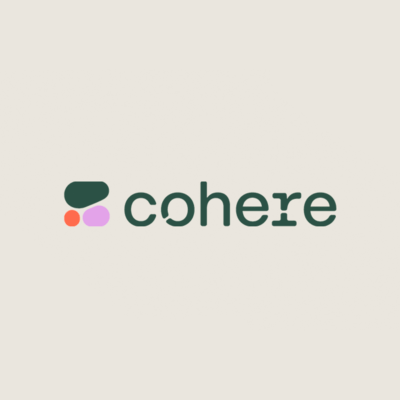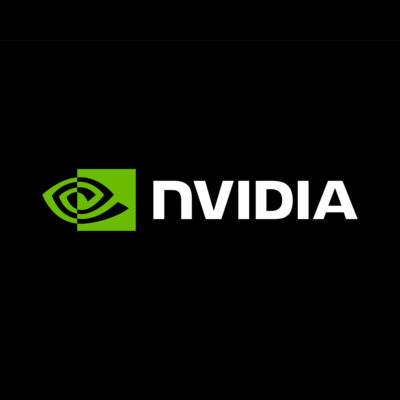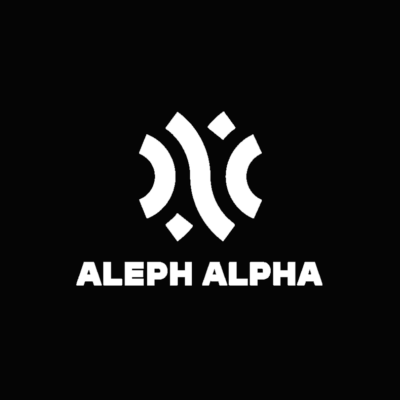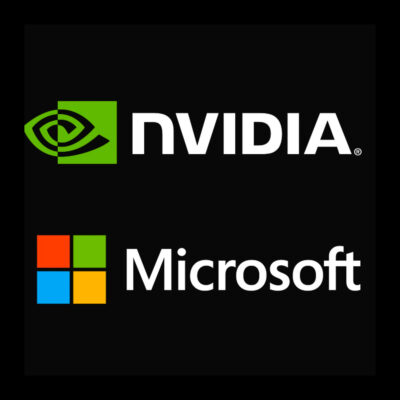Compare Models
-
Stanford University
Alpaca
FREEStanford University released an instruction-following language model called Alpaca, which was fine-tuned from Meta’s LLaMA 7B model. The Alpaca model was trained on 52K instruction-following demonstrations generated in the style of self-instruct using text-davinci-003. Alpaca aims to help the academic community engage with the models by providing an open source model that rivals OpenAI’s GPT-3.5 (text-davinci-003) models. To this end, Alpaca has been kept small and cheap (fine-tuning Alpaca took 3 hours on 8x A100s which is less than $100 of cost) to reproduce. All training data and techniques have been released. The Alpaca license explicitly prohibits commercial use, and the model can only be used for research/personal projects, and users need to follow LLaMA’s license agreement. -
Cohere
Generate
$0.015Cohere is a Canadian startup that provides high-performance and secure LLMs for the enterprise. Their models work on public, private, or hybrid clouds.Cohere Generate can be used for tasks such as copywriting, named entity recognition, paraphrasing, and summarization. It can be particularly useful for automating time-consuming and repetitive copywriting tasks and re-wording text to suit a specific reader or context.Cohere Generate is available as an API that can be integrated into various libraries using Python, Node, or Go software development kits (SDKs).We have shown the price of the Cohere Generate Default version, but a Cohere Generate Custom model is available but is double the price (0.030 per 1/k tokens). However, custom models can lead to some of the best-performing NLP models for many tasks. -
NVIDIA
LaunchPad
FREENVIDIA LaunchPad provides free access to enterprise NVIDIA hardware and software through an internet browser. NVIDIA customers can experience the power of AI with end-to-end solutions through guided hands-on labs or use NVIDIA-Certified Systems as a sandbox, but you need to fill out an Application Form and wait for approval. Sample labs include training and deploying a support chatbot, deploying an end-to-end AI workload, configuring and deploying a language model on the hardware accelerator, and deploying a fraud detection model.*FREE via Application Form -
Aleph Alpha
Luminous-base
$0.0055Aleph Alpha have the Luminous large language model. Luminous models vary in size, price and parameters. Luminous-base speaks and writes 5 languages: English, French, German, Italian and Spanish and the model can perform information extraction, language simplification and has multi-capable image description capability. Aleph Alpha is targeting “critical enterprises” — organizations like law firms, healthcare providers and banks, which rely heavily on trustable, accurate information. You can try Aleph Alpha models for free. Go to the Jumpstart page on their site and click through the examples on Classification and Labelling, Generation, Information Extraction, Translation & Conversion and Multimodal. Aleph Alpha are based in Europe, allowing customers with sensitive data to process their information in compliance with European regulations for data protection and security on a sovereign, European computing infrastructure. -
Aleph Alpha
Luminous-extended
$0.0082Aleph Alpha luminous-extended is the second largest model which is faster and cheaper than Luminous-supreme. the model can perform information extraction, language simplification and has multi-capable image description capability. You can try Aleph Alpha models with predefined examples for free. Go to at the Jumpstart page on their site and click through the examples on Classification and Labelling, Generation, Information Extraction, Translation and Conversion and Multimodal. Aleph Alpha are based in Europe, which allows customers with sensitive data to process their information in compliance with European regulations for data protection and security on a sovereign, European computing infrastructure. -
Aleph Alpha
Luminous-supreme
$0.0319Supreme is the largest model but the most expensive Aleph Alpha Luminous model. Supreme can do all the tasks of the other smaller models (it speaks and writes 5 languages, English, French, German, Italian and Spanish and can undertake Information extraction, language simplification, semantically compare texts, summarize documents, perform Q&A tasks and more) and is well suited for creative writing. You can try out the Aleph Alpha models for free. Go to the Jumpstart page on their site and click through the examples on Classification & Labelling, Generation, Information Extraction, Translation & Conversion and Multimodal. -
Aleph Alpha
Luminous-supreme-control
$0.0398Supreme-control is its own model, although it is based on Luminous-supreme and is optimized on a certain set of tasks. The models differ in complexity and ability but this model excels when it can be optimized for question and answering and Natural Language Inference.You can try out the combination of the Aleph Alpha models with predefined examples for free. Go to at the Jumpstart page on their site and click through the examples on Classification & Labelling, Generation, Information Extraction, Translation & Conversion and Multimodal. -
Microsoft, NVIDIA
MT-NLG
OTHERMT-NLG (Megatron-Turing Natural Language Generation) uses the architecture of the transformer-based Megatron to generate coherent and contextually relevant text for a range of tasks, including completion prediction, reading comprehension, commonsense reasoning, natural language inferences, and word sense disambiguation. MT-NLG is the successor to Microsoft Turing NLG 17B and NVIDIA Megatron-LM 8.3B. The MT-NLG model is three times larger than GPT-3 (530B vs 175B). Following the original Megatron work, NVIDIA and Microsoft trained the model on over 4,000 GPUs. NVIDIA has announced an Early Access program for its managed API service to the MT-NLG model for organizations and researchers. -
NVIDIA
NeMo
FREENVIDIA NeMo, part of the NVIDIA AI platform, is an end-to-end, cloud-native enterprise framework to help build, customize, and deploy generative AI models. NeMo makes generative AI model development easy, cost-effective and fast for enterprises. NeMo has separate collections for Automatic Speech Recognition (ASR), Natural Language Processing (NLP), and Text-to-Speech (TTS) models. Each collection consists of prebuilt modules that include everything needed to train on your data. NeMo framework supports both language and image generative AI models. Currently, the workflow for language is in open beta, and the workflow for images is in early access. You must be a member of the NVIDIA Developer Program and logged in with your organization’s email address to access it. It is licensed under the Apache License 2.0, which is a permissive open source license that allows for commercial use. -
Cohere
Summarize
$0.015Cohere is a Canadian startup that provides high-performance and secure LLMs for the enterprise. Their models work on public, private, or hybrid clouds and is available as an API that can be integrated into various libraries using Python, Node, or Go software development kits (SDKs).Cohere Summarize generates a succinct version of a provided text. This summary relays the most important messages of the text, and a user can configure the results with a variety of parameters to support unique use cases. It can instantly encapsulate the key points of a document and provides text summarization capabilities at scale.






